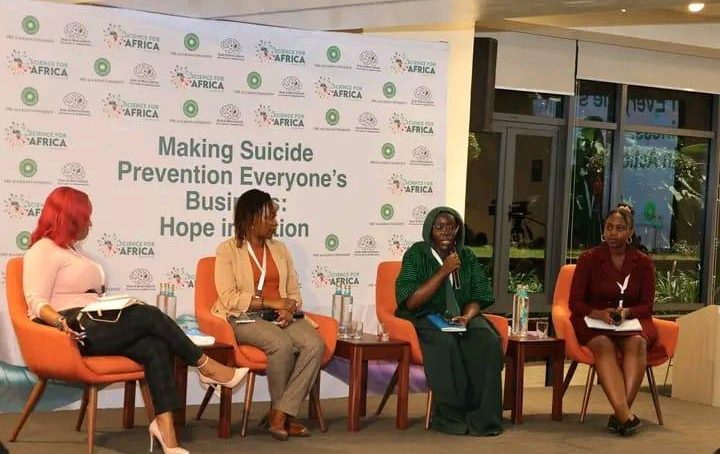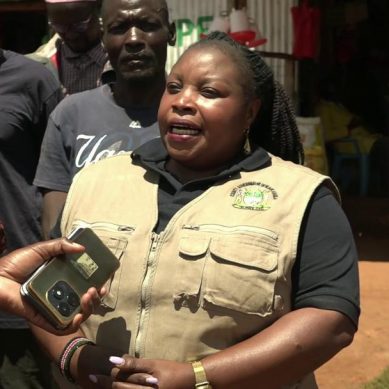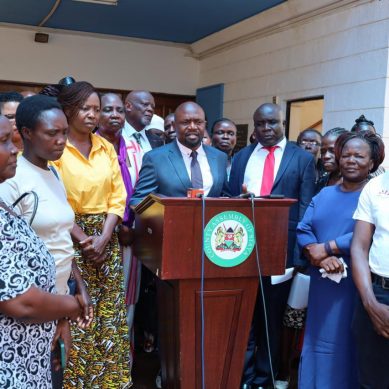
Mental health advocates have called for urgent investment in school-based and youth-centred suicide prevention measures to address the growing burden of mental health challenges among young people in Kenya and across Africa.
Kenya Medical Research Institute (KEMRI) Principal Clinical Research Scientist Linet Ongeri said suicide is now the third leading cause of death worldwide, with Africa recording the highest burden.
“The African region records 11.5 suicide deaths per 100,000 people annually. In Kenya, the rate is 8.9, but men are disproportionately affected at 14.2 compared to 4.6 for females,” Dr Ongeri said.
Speaking in Nairobi on Wednesday during the Aga Khan University’s Brain and Mind Institute (BMI) Youth Suicide Prevention Forum, she explained that young people aged 15 to 29 years are the most affected, especially in low and middle-income countries.
“Suicide is preventable if we understand who is most at risk and implement interventions that work,” she added.
Ongeri said pesticide poisoning and hanging remain the leading methods of suicide in Africa, stressing the need for regulation and safe storage of pesticides. She identified school-based programmes, psychotherapies for high-risk youth, and emergency safety planning and digital tools such as crisis text lines as effective interventions.
“Schools are a critical entry point. Teachers must be trained to support learners, while referral linkages should ensure those at risk are connected to care,” she said.
“Suicide prevention is everyone’s business. Restricting access to lethal means, scaling up school programmes, and investing in culturally relevant interventions are critical steps forward,” she said.
Ongeri urged governments and communities to fund and co-create youth-focused interventions.
“Over-reliance on donor-driven programmes weakens cultural relevance. Suicide prevention must be locally funded, community-owned and co-created with youth,” she said.
Safe Haven Wellness founder, Nadra Aley, said there is need to bridge the gap between scientific research and community understanding.
“Research findings should be simplified and packaged in ways that communities and policymakers can use to implement interventions,” Aley said.
Nivishe Foundation founder, Amisa Rashid, noted that language and cultural barriers continue to hinder suicide prevention efforts.
“The Swahili term ‘kujitia kitanzi’ implies suicide is a voluntary act and worsens stigma. The words we use can either heal or harm. We need culturally sensitive language that humanises rather than condemns those at risk,” Rashid said.
She also warned that while digital platforms are useful, they must be safeguarded to protect young people.
“As we embrace technology in mental health, we must ensure it does not expose vulnerable users to further harm,” she added.
“In many communities, suicide is seen as a moral failure rather than a clinical condition. Religious leaders are key gatekeepers. If they embrace suicide prevention as a health issue, stigma will reduce and families will seek help,” Rashid said.
Jomo Kenyatta University of Agriculture and Technology (JKUAT) student and mental health advocate, Faith Mugo, shared her experience with depression during high school.
“What I needed was a safe space, trained counsellors and supportive teachers. Instead, I was punished and branded as rude for speaking out,” she said.
Mugo urged schools to integrate mental health education and provide professional counselling and peer support systems.
“Students must feel heard and understood. Instead of punishment, we need compassion,” she added.
The forum underscored the role of faith and community leaders in fighting stigma, saying that religious beliefs often prevent families from disclosing suicide deaths.
The Mental Health Advocates resolved that suicide prevention requires a multi-sectoral approach involving health, education, agriculture, faith groups, civil society and the media.
- A Tell Media / KNA report / By Darlene Kuria and Naif Rashid







